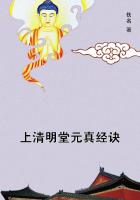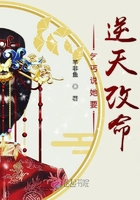Let us now proceed to define the terms 'together' and 'apart', 'in contact', 'between', 'in succession', 'contiguous', and 'continuous', and to show in what circumstances each of these terms is naturally applicable.
Things are said to be together in place when they are in one place (in the strictest sense of the word 'place') and to be apart when they are in different places.
Things are said to be in contact when their extremities are together.
That which a changing thing, if it changes continuously in a natural manner, naturally reaches before it reaches that to which it changes last, is between. Thus 'between' implies the presence of at least three things: for in a process of change it is the contrary that is 'last': and a thing is moved continuously if it leaves no gap or only the smallest possible gap in the material-not in the time (for a gap in the time does not prevent things having a 'between', while, on the other hand, there is nothing to prevent the highest note sounding immediately after the lowest) but in the material in which the motion takes place. This is manifestly true not only in local changes but in every other kind as well. (Now every change implies a pair of opposites, and opposites may be either contraries or contradictories; since then contradiction admits of no mean term, it is obvious that 'between' must imply a pair of contraries) That is locally contrary which is most distant in a straight line: for the shortest line is definitely limited, and that which is definitely limited constitutes a measure.
A thing is 'in succession' when it is after the beginning in position or in form or in some other respect in which it is definitely so regarded, and when further there is nothing of the same kind as itself between it and that to which it is in succession, e.g. a line or lines if it is a line, a unit or units if it is a unit, a house if it is a house (there is nothing to prevent something of a different kind being between). For that which is in succession is in succession to a particular thing, and is something posterior: for one is not 'in succession' to two, nor is the first day of the month to be second: in each case the latter is 'in succession' to the former.
A thing that is in succession and touches is 'contiguous'. The 'continuous' is a subdivision of the contiguous: things are called continuous when the touching limits of each become one and the same and are, as the word implies, contained in each other: continuity is impossible if these extremities are two. This definition makes it plain that continuity belongs to things that naturally in virtue of their mutual contact form a unity. And in whatever way that which holds them together is one, so too will the whole be one, e.g. by a rivet or glue or contact or organic union.
It is obvious that of these terms 'in succession' is first in order of analysis: for that which touches is necessarily in succession, but not everything that is in succession touches: and so succession is a property of things prior in definition, e.g. numbers, while contact is not. And if there is continuity there is necessarily contact, but if there is contact, that alone does not imply continuity: for the extremities of things may be 'together' without necessarily being one: but they cannot be one without being necessarily together. So natural junction is last in coming to be: for the extremities must necessarily come into contact if they are to be naturally joined: but things that are in contact are not all naturally joined, while there is no contact clearly there is no natural junction either. Hence, if as some say 'point' and 'unit' have an independent existence of their own, it is impossible for the two to be identical: for points can touch while units can only be in succession.
Moreover, there can always be something between points (for all lines are intermediate between points), whereas it is not necessary that there should possibly be anything between units: for there can be nothing between the numbers one and two.
We have now defined what is meant by 'together' and 'apart', 'contact', 'between' and 'in succession', 'contiguous' and 'continuous': and we have shown in what circumstances each of these terms is applicable.














